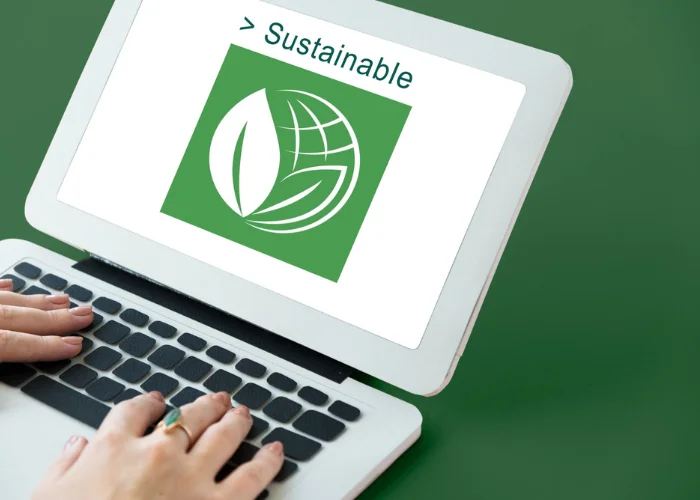
Sustainability
Environmental factors are changing the way we live and work at a rapid pace, driving organisations to rethink their strategy and transform their business, all while reporting progress transparently.
Every business is deeply intertwined with environmental, social, and governance (ESG) concerns. An improved Environmental, Social and Governance (ESG) strategy and disclosure that fits with your organization’s purpose means that you can respond to these expectations, adapt to changes and challenges while taking advantage of opportunities. More importantly, your ability to evaluate and demonstrate your positive contribution can enhance the competences that lead to a more sustainable future.
- The E in ESG, environmental criteria, includes the energy your company takes in and the waste it discharges, the resources it needs, and the consequences for living beings as a result. Not least, E encompasses carbon emissions and climate change. Every company uses energy and resources; every company affects, and is affected by, the environment.
- S, social criteria, addresses the relationships your company has and the reputation it fosters with people and institutions in the communities where you do business. S includes labour relations and diversity and inclusion. Every company operates within a broader, diverse society.
- G, governance, is the internal system of practices, controls, and procedures your company adopts in order to govern itself, make effective decisions, comply with the law, and meet the needs of external stakeholders. Every company, which is itself a legal creation, requires governance.
Just as ESG is an inextricable part of how you do business, its individual elements are themselves intertwined. For example, social criteria overlaps with environmental criteria and governance when companies seek to comply with environmental laws and broader concerns about sustainability. Our focus is mostly on environmental and social criteria, but, as every leader knows, governance can never be hermetically separate. Indeed, excelling in governance calls for mastering not just the letter of laws but also their spirit—such as getting in front of violations before they occur, or ensuring transparency and dialogue with regulators instead of formalistically submitting a report and letting the results speak for themselves.
Why QACA Sustainability?
Sustainability is the ability to meet the needs of the present without compromising the ability of future generations to meet their own needs. It's about balancing environmental, social, and economic factors in our decision-making.
Key pillars of sustainability:
- Environmental sustainability: Conserving resources, reducing pollution, and protecting ecosystems.
- Social sustainability: Ensuring fairness, equity, and justice for all people, including future generations.
- Economic sustainability: Building a strong and resilient economy that meets the needs of all stakeholders.
Quality Austria Central Asia Assurance, Testing, Inspection, and Training (ATIC) services can play a crucial role in helping businesses achieve their sustainability goals.
Assurance:
- Sustainability (ESG) audits, gap assessments and reporting: Assess your current sustainability practices, identify gaps, and develop strategies for improvement.
- Sustainability assurance and certification including disclosures.
- ESG training, Sustainibility reporting & capacity building
- Life cycle assessment (LCA): Evaluate the environmental footprint of your products, services, and processes throughout their lifecycle.
- Social compliance audits: Verify adherence to ethical labour practices and responsible sourcing standards.
Inspection:
- Green building inspections: Verify compliance with green building standards and certifications.
- Renewable energy installation inspections: Ensure proper installation and safety of renewable energy systems.
- Waste management facility inspections: Assess compliance with environmental regulations and best practices.
- Supply chain inspections: Trace materials and ensure ethical sourcing practices throughout your supply chain.
Training & capacity building:
- Sustainability training, GRI framework training, BRSR training: Train employees on sustainability concepts, best practices, and relevant regulations.
- ISO standards such as Environment, Energy, GHG verification, water foot print, carbon foot print verification, Lead Auditor, Internal auditor training: Train personnel to conduct internal or third-party sustainability audits.
- Supplier code of conduct training: Help suppliers understand and comply with your sustainability requirements.
With expertise in all major industries, we understand each sector’s pain points and have the technical expertise and logistical capabilities across the globe to ensure realistic sustainability outcomes.
By partnering with Quality Austria Central Asia, you can gain valuable insights, implement effective strategies, and achieve your sustainability goals. Remember, sustainability is a journey, not a destination. Continuous improvement and innovation are key to achieving lasting success.
For any queries or further information related to our services, please feel free to contact us at info@qacamail.com or call us at +919599619392. We are here to assist you!









